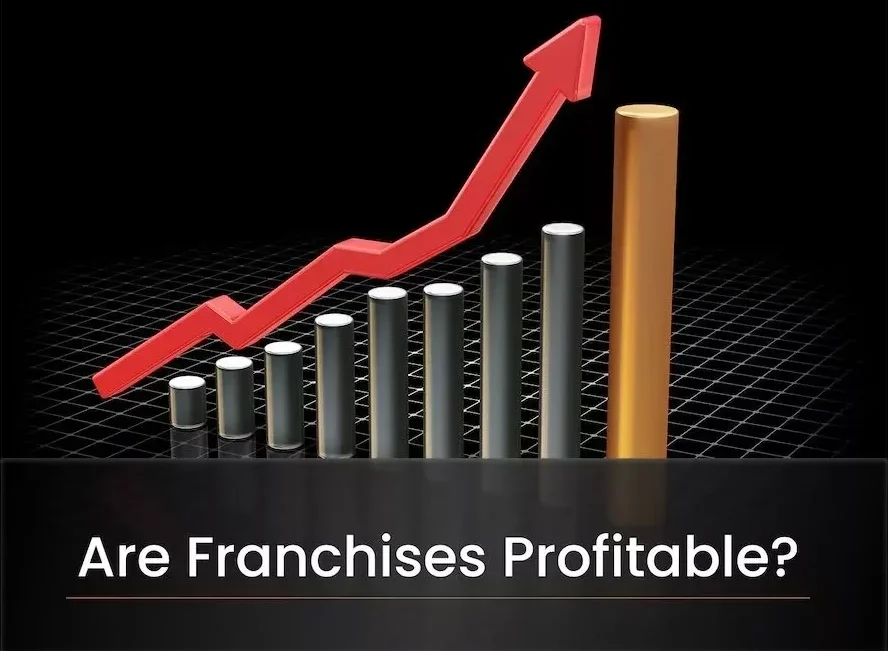To buy a franchise or open an independent business? That is a question many first-time business owners consider when they’re ready to get their investment feet wet. The question that naturally follows this one is: are franchises profitable?
Some may ask: is owning a franchise worth it? Are franchises a good investment? However phrased, the bottom line entrepreneurs are seeking before making such a big decision is whether franchises are really profitable. Should they buy a franchise or open an independent business?
Owning a franchise is a complex undertaking, so as frustrating as it is, the answer is it depends. But are franchises profitable? A deeper look will help us understand how a franchise can be a wise investment compared to an independent business.
Franchises vs Independent Businesses
First, what is a franchise?
When signing a franchising agreement, an investor agrees to operate the business according to the franchisor’s business model. The franchise investor oversees a specific location as if it’s their own business, with the understanding that they operate it within the parameters the franchisor lays out. They keep the profits, minus a royalty and other fees for access to the franchise’s brand.
The franchise owner receives many benefits from the franchisor alongside profits. These benefits give the franchise owner a boost to their business, making it a mutually beneficial relationship for both parties.
The Benefits of Franchises
What are the benefits? Franchisors have help from many entrepreneurs operating locations across a greater geographical area than perhaps their leadership team could manage by themselves. For franchisees, there are a multitude of benefits.
Recognizable Brand
When opening an independent business, the owner is responsible for spreading word-of-mouth alone, gaining customers’ trust, and building a solid reputation in the industry.
Opening a franchise sidesteps this problem completely. Franchise owners gain immediate access to a recognizable brand customers already know and trust.
Franchise Support
Opening an independent business means the owner must learn to strategize and avoid pitfalls without guidance. Franchise owners have the backing of an experienced franchise team. The team will know where to save headaches and money, and they’ve likely developed an onboarding, training, and launch protocol designed to give each franchise location the best grand opening possible, which is particularly helpful for first-time business owners.
Working with a Good Business Plan
With a franchise, investors are signing up to operate a business plan executed at least once and likely more. Franchises have formulas to run each location, and following them sets the expectation of a break-even point and potential profitability. There are variables, but those are true of any business.
Less Risky than Going Alone
With an independent business, you’re taking on the burden of all the risk.
With a franchise, you’re investing in a known brand and sharing the risk. The franchisor has done much of the upfront work to establish its reputation, build its customer base, secure its market position, and learn its best demographics. Opening a franchise location gives access to share those assets when the risks have already been taken.
Experience is a Bonus, Not a Requirement
Why? The franchise will train you and help you find people with the required certifications, education, or training to perform the franchise functions.
If you’re an independent business owner opening, for example, a ninja sports gym franchise for kids, you’d have to become an expert in ninja sports. Not to mention needing to learn how to design the obstacle courses and create a curriculum that builds their strength, agility, and endurance.
Whereas, if you open a NinjaTrix franchise, you’d undergo a tried-and-tested training program for teaching your students the ins and outs of kickin’, flippin’, and trickin’. You would also ensure before opening that you and everyone working with you have the proper licensing, background checks, and USA Gymnastics memberships required to operate a thriving franchise location.
Are Franchises Profitable?
There are a lot of variables in franchising, so it depends.
Once you learn the brand’s business model and processes, you should become profitable once you reach the break-even point.
So are franchises profitable? Some factors that can influence profitability are:
- Location is critical to a franchise’s success. Franchisors help investors with expert advisors and demographic data to select the best possible location in their new territory. Buying vs leasing also makes a difference in profit.
- Expenses and waste minimization may seem obvious, but it’s easy to get out of hand. Carefully monitoring waste and expenses is a great way to keep your finger on the pulse of your business’s financial health. When someone asks, “Are franchises profitable?” You can answer that yours is.
- Support and training are key. Is owning a franchise profitable? It’s more likely when the franchisor and franchisee work in concert together to see each location thrive. When franchise owners can turn to their franchisor for everything they need to operate smoothly, and franchisors can trust their franchisees to follow the business model, it works.
Are Franchises Profitable? Investing in the Right Franchise
The greatest variable in answering the question: are franchises profitable, is the human factor.
When passionate investors come together with knowledgeable and dedicated franchise development professionals, franchise magic is possible. People who take the time, put in the work, and carry out the plan while giving their all are likelier to realize their profit and professional goals than those who don’t.
Are franchises profitable? They can be, with the right attitude, people, and opportunity.
Are you looking for a rewarding investment working with children in an exciting industry on the cusp of soaring to new heights? We have the franchise opportunity you’re looking for with NinjaTrix. Contact us to get started right away!





